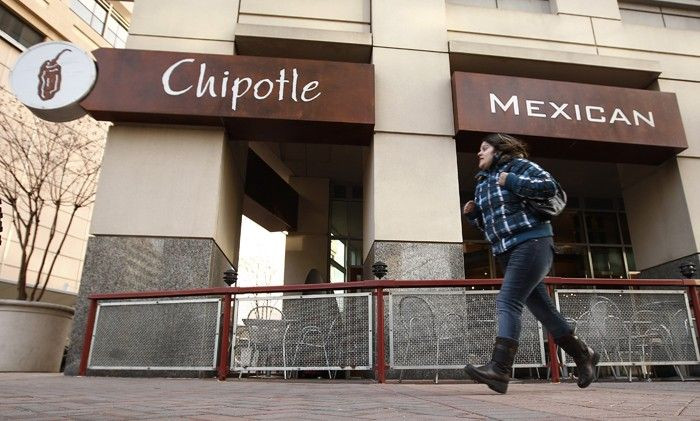The 'Better Burger' Factor: Why Five Guys, Chipotle Are on the Rise

When Five Guys Burgers and Fries stores started opening in San Diego, Calif., this spring, lines spread out the door for days on end as burger-hungry customers who like fries cooked in peanut oil welcomed the franchise chain to the community with hearty appetites and demand.
Customers order at Five Guys stores just like they do at traditional fast food restaurants, telling cashiers what they want and picking it up on a tray when it's ready. But it's not traditional fast food restaurants like McDonald's and Burger King that Five Guys is hurting the most with the success like it's had in San Diego.
Full-service, mid-priced restaurants including Chili's, owned by Brinker International Inc (NYSE: EAT) and Applebee's, owned by DineEquity Inc., are struggling to keep up with the shift in customer tastes and desires that's leaving sales flat while the hungry flock to Five Guys and similar so-called better burger restaurants and other competitors in the space, including Chipotle Mexican Grill Inc. (NYSE: CMG) and Panera Bread Co. (NASDAQ: PNRA).
These restaurants serve like traditional fast food restaurants, but provide foods made with better ingredients. The waits are short and diners don't have to pay tips to servers, but still get to enjoy higher-end food.
Chili's and Applebee's have such a negative connotation with just being cheap food, said Sarah Perry, a 27-year-old arborist at the Morton Arboretum in the Chicago suburb of Lisle, Ill., in an interview with Bloomberg. She said she would rather dash into a Five Guys for a burger rather than sit down and order at a casual dining restaurant.
Five Guys to Reach 1,400 Stores in Two Years
Five Guys is growing fast, meeting demand of younger customers with similar tastes. Customers like Perry want a fast food experience but they don't want the traditional fast food results: They want higher-quality food and fresher ingredients.
Five Guys plans to add 600 new locations throughout the U.S. in the next two years, giving the hamburger chain a total of 1,400 units. The hamburger chain has benefited from involvement from the likes of professional golf star Phil Mickelson, who owns rights to the chain in Orange County, Calif., and has been a self-professed fan of the food.
Other better burger chains are growing fast as well, including Smashburger, which has 100 stores currently but is expanding in markets including Miami and Los Angeles.
Chipotle Mexican Grill is growing fast for the same reasons the better burger chains are thriving. Once owned by McDonald's but spun off several years ago on its own, Chipotle, based in Denver, Colo., develops and operates fast, casual, fresh Mexican food restaurants in the U.S.
During a recent visit to a Chipotle restaurant in Manhattan's Murray Hill neighborhood, the line at a Chipotle restaurant snaked out the door, extending to the sidewalk -- but it moved fast.
Also, because Chipotle promotes fresh ingredients, the health-conscious will choose such fare over other fast food options like burgers-and-fries chains. Orders come in big serving sizes, typically bigger in portion than one gets for similar fare at Chili's or Applebee's, it's said to be fresh and without preservatives, and customers can get in and out quickly.
Chipotle has had one of the hottest stocks on Wall Street in recent years. The stock is trading very near a 52-week high at $308.70 per share, at a price-to-earnings ratio of 52. One year ago Chipotle's stock was trading around $120 per share. The company has a profit margin of almost 10 percent, and an operating margin of almost 16 percent.
Brinker Shares Under Pressure
Meanwhile Brinker, which owns Chili's, is trading near a 52-week high at $25.06 per share but one year ago the company's stock was at $15 per share. The stock trades at a price-to-earnings ratio of 14.85, and pays a dividend of 2.3 percent, but Brinker, owning other mid-priced, full-service casual dining restaurants including Maggiano's Little Italy, has a profit margin of almost 6 percent and an operating margin of almost 8 percent -- not nearly as strong as Chipotle's numbers. And in the past three years, shares of Dallas-based Brinker have declined.
Analysts say Brinker's revenue may drop 3.6 percent this year, and revenue at DineEquity, the owner of Applebee's, may continue a decline that's occurred for eight of the past nine quarters. Ruby Tuesday, another competitor in the mid-price, full-service casual dining space, has also struggled to maintain sales and profits in the better burger and fresh-food-fast movement.
In response, the mid-priced, full-service casual dining chains are trying to win back customers with Girls' Night Out parties and freshened menus and stores. These chains, including Chili's, Applebee's and Ruby Tuesday, expanded rapidly from 2000 to 2006 but when the recession hit and consumers became more conscious over dollars, the over-saturated market softened as diners turned in larger numbers to restaurants where they didn't have to pay tips to waiters.
That's given a big boost to chains like Chipotle, offering fast food service with higher-quality ingredients than traditional fast food. But the question for the future becomes: Are they growing too fast, just as the mid-level, full-service casual dining restaurants did?
One restaurant strategist thinks so. There are too many of these 'better burgers' popping up, said Todd Hooper, with Kurt Salmon in San Francisco, in an interview with Bloomberg. Hamburgers are one of the top favorite foods in this country, but I think it's going to limit the growth of these concepts because there are too many of them.
© Copyright IBTimes 2024. All rights reserved.





















